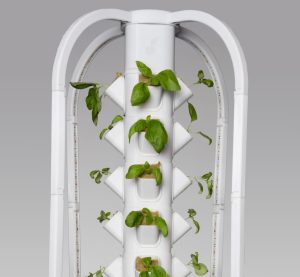
Hydroponic systems, especially vertical setups, allow you to grow a large number of plants in a minimal footprint. By stacking plants vertically, you can utilize unused vertical space, making it ideal for small apartments, balconies, or even indoor spaces.
Plants grown in hydroponic systems receive nutrients directly through the water, this promotes faster growth and higher yields compared to traditional soil gardening. This efficiency means you can harvest more frequently, even in limited space.
Hydroponics uses significantly less water than gardening with soil because hydroponics utilizes a closed system that recycles water. This makes it an eco-friendly option for urban gardeners concerned about water usage.
By eliminating soil, hydroponic systems reduce the risk of soil-borne pests and diseases. This results in healthier plants and fewer issues with infestations, which is particularly beneficial in compact indoor gardening setups.
Vertical farming allows for higher plant density, leading to increased production per square foot. This is particularly advantageous for those with limited horizontal space.
By using CEA technology, vertical farms can maintain optimal growing conditions year-round, ensuring consistent and high-quality yields regardless of external weather conditions.
Vertical farms typically use LED lighting and efficient water use practices, reducing the environmental impact of food production. This sustainability makes vertical farming an attractive option for eco-conscious urban dwellers.
